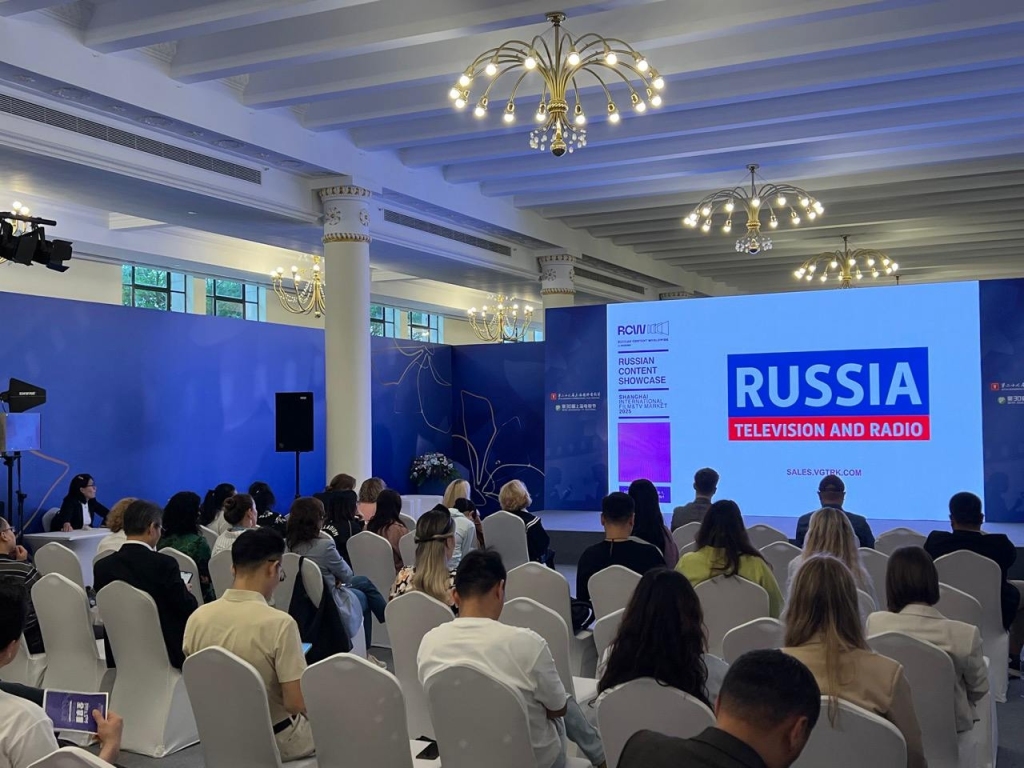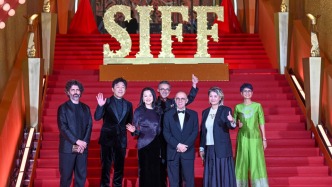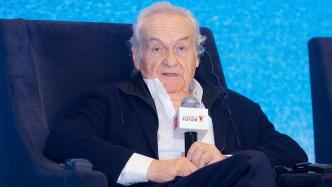
Jerzy Skolimowski often fell into a moment of silence at the Golden Goblet Awards jury chairman forum and during media interviews. Perhaps, in the eyes of many, this is because the Polish director has entered the age of 85 and his thoughts are not so quick. However, this momentary silence may also be a habit imposed by history. In my limited interview experience with directors, screenwriters, film musicians, and animation producers in Central and Eastern Europe, such moments of silence are not uncommon.
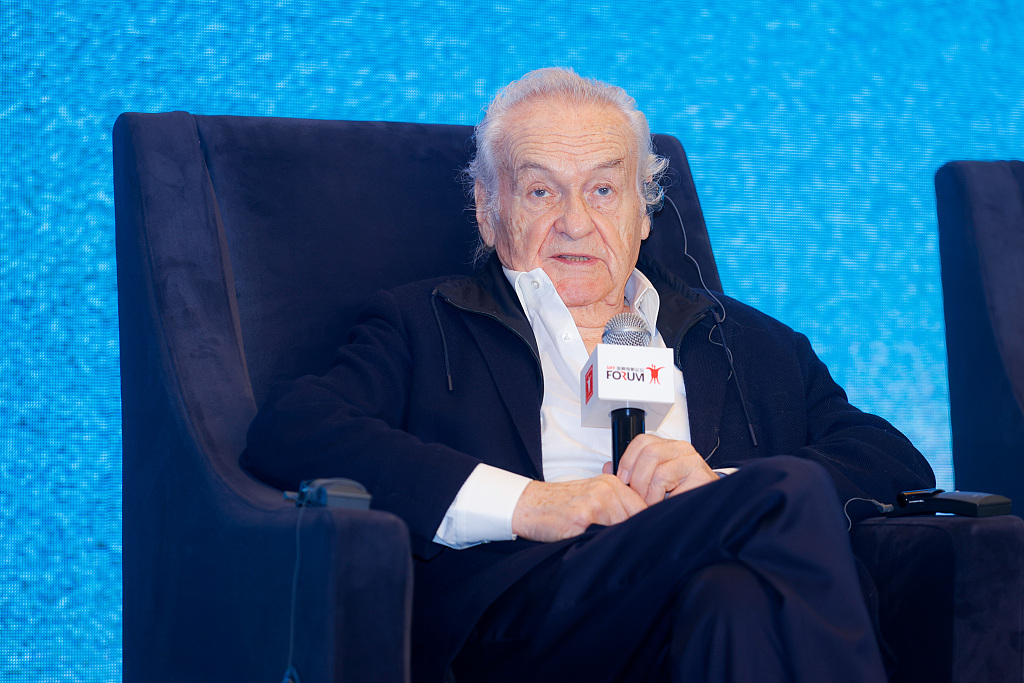
On June 14, 2023, the chairman of the jury of the 25th Shanghai International Film Festival Golden Goblet Awards Forum, the chairman of the jury of the main competition unit of the Golden Goblet Awards and director Jerzy Skolimowski attended the event. Visual China Map
an underrated director
Skolimowski's fellow writer Czeslov Milosz wrote in "The Imprisoned Mind": "In those days I felt myself a man who had enough room to move freely, But there is still a long chain trailing behind him, a chain that has always pinned him in one place. Part of that chain is external—but at the same time, and perhaps more importantly, in me.” I don’t It is clear whether Skolimowski felt the same way, they both left their homes, wandered in the West for decades, and finally chose to return to Poland. But alas, to this day, when I talk about the movie Hands Up! that forced him to leave his home country, he phrases it like "I made a mistake..."
It has to be said that it is an unexpected surprise that the Shanghai International Film Festival invited Skolimowski to be the chairman of the jury for the Golden Goblet Awards.
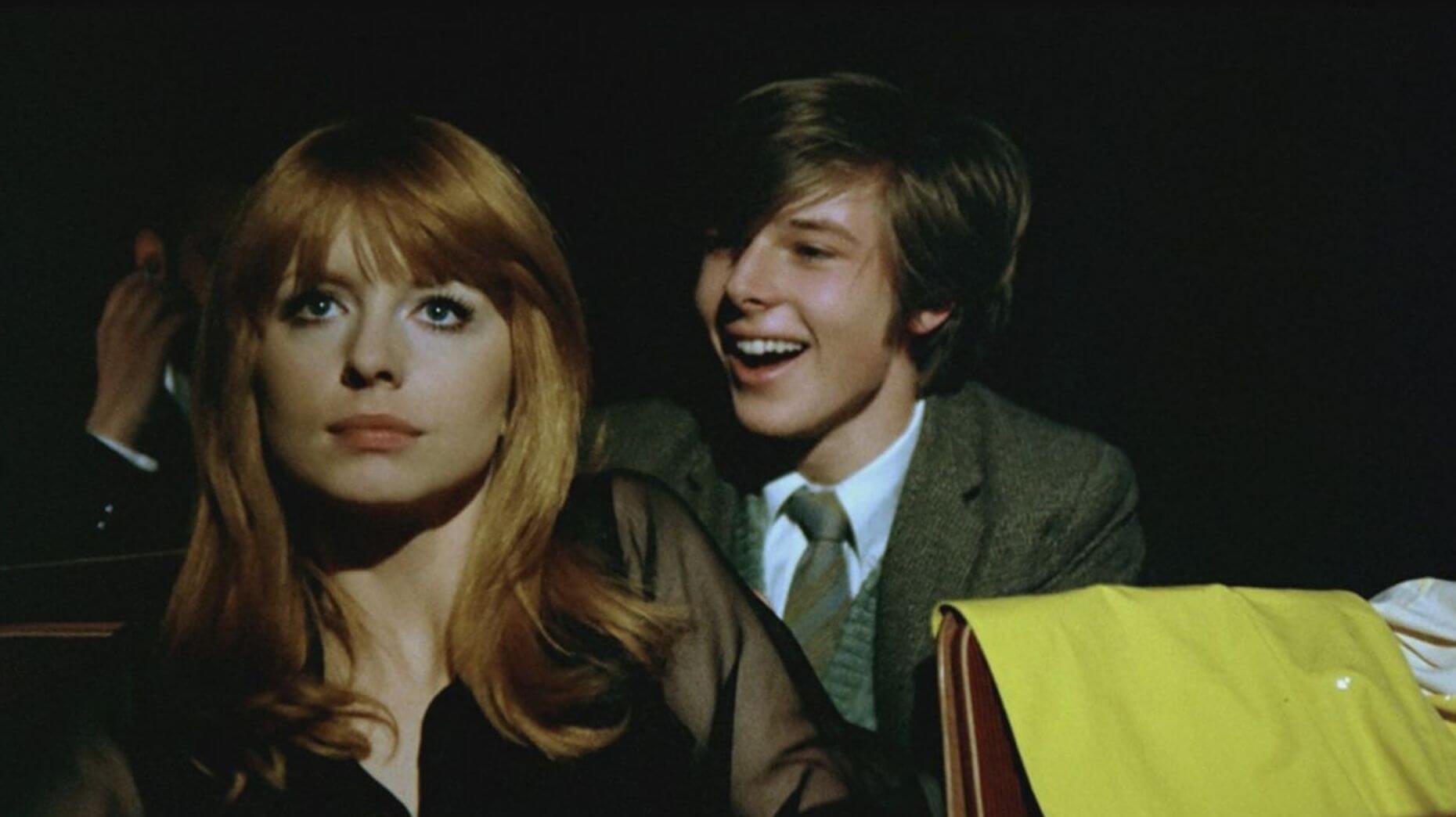
"Early Spring" stills
For a long time, he was an underrated director. I first saw his work more than a decade ago in Deep End. This movie has another imaginative Chinese translation called "Bathroom Spring Love". The story is about a young British boy who works as a handyman in a public bathroom and falls hopelessly in love with his older female colleague. It ended in tragedy. In fact, the emotional performance of the film is quite restrained, but the composition of the picture, color matching, and the soundtrack interspersed with it are quite wanton, which can be described as stunning. I took it for granted that this work was made by some British filmmaker, but after searching, I found out that its director, Jerzy Skolimowski, was actually Polish. "Early Spring" was a work he shot in 1970 after he left his home country, but it didn't make much splash at the time. It wasn't until 2010 that the film was restored in 2K that its value was rediscovered.
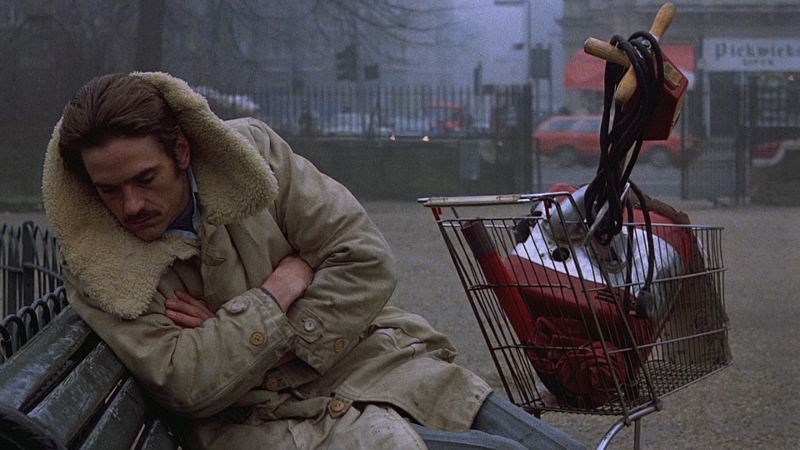
Jeremy Irons in "Moonlight"
Then I found Skolimowski's Moonlighting (1982). The film tells the story of Novak, a Polish decorator, who brought several compatriots to London to work illegally. He was caught between the demands of his employer and the incomprehension of his compatriots. People's food and drink, so I had to take a desperate risk to take food from the supermarket. In the end, because of the changing situation in Poland, I almost couldn't go back. Although the film is very emotionally moving, the tense atmosphere is particularly masterful, and it has won the Cannes Best Screenplay Award, and the starring role is the famous British actor Jeremy Irons, but the film itself still seems to have little popularity—— It is worth mentioning that, as one of the five works of Skolimowski screened (the other four are "Death Calling", "Four Nights with Anna", "Necessary Killing" and "The Donkey Cry"), Shanghai Audiences are fortunate to be able to watch this film under the big screen at this year's Shanghai International Film Festival.
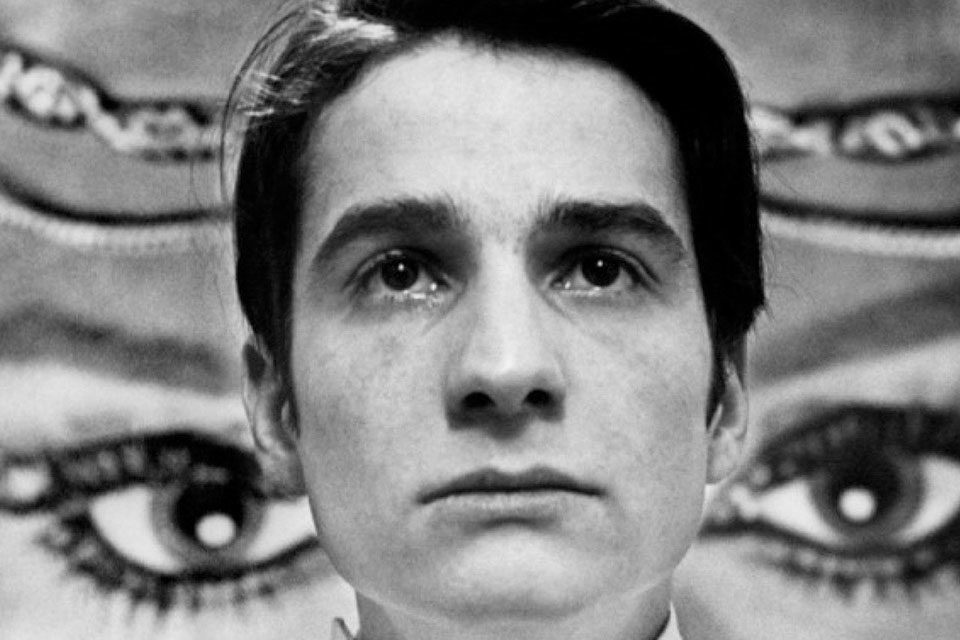
"Departure" stills
This is true of "Early Spring" and "Moonlight", not to mention "Identification Marks: None", "Walkover", "Bariera", " The popularity of "Le départ" (Le départ) has increased. And if you have seen the above works, it is hard not to think of the French New Wave. For example, the "Andrzej Trilogy" ("Taking Lightly", "The Obstacle", "The Call of Silence") will remind people of Truffaut's "Antoine Series", and "Antoine" Jean-Pierre "Departure" starring Leaud will remind people of Godard's early style. This similarity is not a simple imitation, but closer to a spiritual echo.
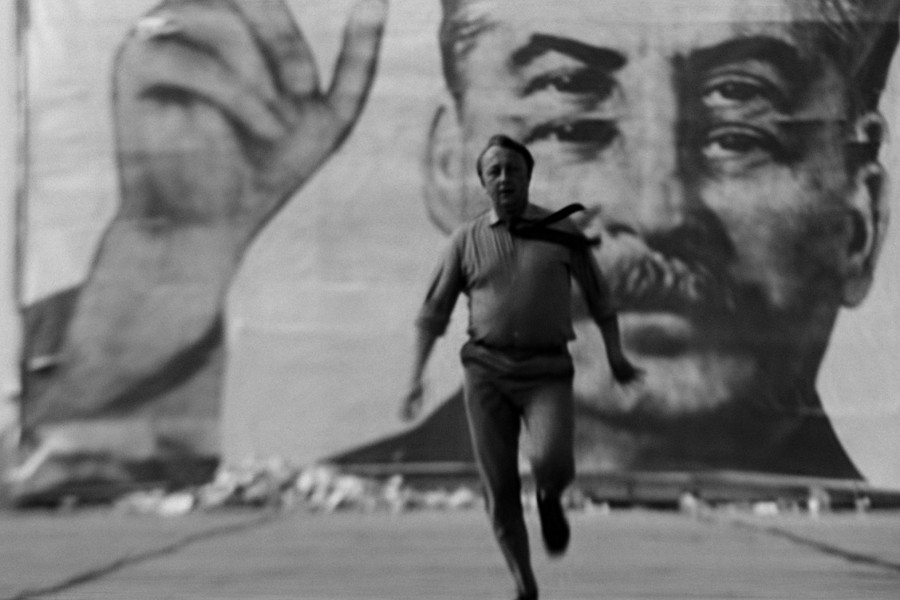
Stills of "The Call of Silence"
To be buried seems to be part of his destiny
In any case, being buried seems to be part of Skolimowski's fate. After all, he did choose to completely drop the guide tube after the failure of "Ferddy Dukai" (30 Door Key) in 1991 and turn to And take painting as a profession. Fortunately, he, who has a wide range of interests and has a different understanding of himself, doesn't seem to care much about it. It seems that at this forum, when the famous film historian Marco Muller gave him multiple identities such as boxer, jazz player, writer, and painter, he couldn't help correcting him and said: "You describe me too well. Yes. It is true that I was a drummer in a jazz band, but I played badly; I was also a boxer, but as an amateur, and lost half my bouts; On a very small scale." He has also appeared in high-profile films such as "Eastern Promise" and "The Avengers", but often played small supporting roles--actors whose jobs he said he earned. Easiest money. Fortunately, 17 years later, Skolimowski returned to the director's seat. With the release of "Four Nights with Anna", "Necessary Killing", "11 Minutes" and "The Donkey Crying", and has repeatedly won awards at European film festivals, his director career has also ushered in a new turning point. As he himself said, "In general, the only real opportunity for me to reach the public and become an artist is only through making films."
The succession of his works brought Skolimowski back to the eyes of the media and movie fans, allowing the outside world to know more about his life story. For example, he once went to the same school and lived in the same dormitory in Prague with Czech directors Milos Forman and Ivan Passer; for example, he was at the same table with Czech politician and writer Vaclav Havel; for example He once committed to put Susan Sontag's novel "In America" on the screen, but because he couldn't find the investment, the final plan was aborted; Brandauer ("Mephistopheles", "Out of Africa"); for example, "Necessary Killing" star Vincent Gallo refused to go on stage to receive the Best Actor Award at the Venice Film Festival, but did not forget to ask He wants to return a precious watch as a prize, etc. or a regretful or interesting episode.
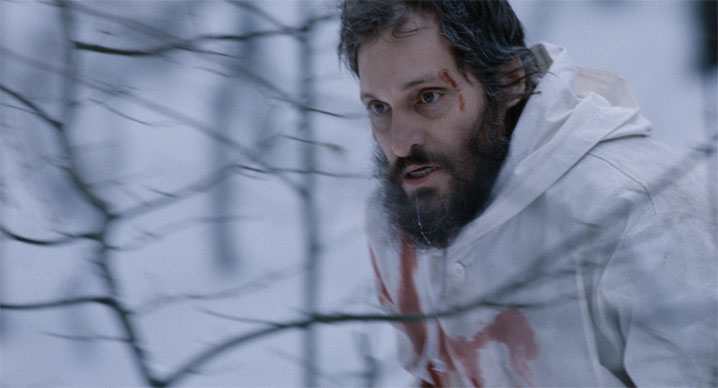
Vincent Gallo in Necessary Killing
This time, when he came to Shanghai to serve as the chairman of the jury for the Golden Goblet Awards, Skolimowski spent most of his time watching the shortlisted films, and the interview time for our media was obviously very limited. Considering that in the conversation with Marco Müller, he made it clear that he does not like to talk about theoretical topics, most of my questions fall on him and his collaborators.
Speaking of collaborators, Skolimowski has written most of his scripts in the past, more recently with his current partner, Ewa Piaskowska. Eva has been with Skolimowski for many years, and she also came to Shanghai together this time. When the media conducted interviews, she sat on the floor in a corner of the room, occasionally speaking to help, correcting Skolimowski's English with an accent. The photographers that Skolimowski worked with were different for each film.
If there is a relatively fixed role in the main creative team, it may be the soundtrack. Polish composer Krzysztof Komeda (Krzysztof Komeda), who is good at interpreting free jazz, is responsible for the soundtrack of Skolimowski's early works "Obstacle", "Departure" and "Silent Roar". Although it is generally believed that Komeda, who died young, composed the soundtracks for Roman Polanski's "Rosemary's Baby" and "Knife in the Water" are his masterpieces, but in fact his composition for "Go" The soundtrack is also a rare masterpiece. After leaving Poland for England and America, Skolimowski worked most often with the atmospheric British composer Stanley Myers. Returning to the film industry in his later years, he formed a long-term partnership with Paweł Mykietyn, a new generation of Polish composers.
And when it comes to these old friends, Skolimowski will open up the conversation box and talk endlessly, and the "moment of silence" when answering other questions will automatically disappear.
【Interview】
"Hans Zimmer has made a fortune in Hollywood, and I am also considered Bole"
The Paper: Among your works, the first one I read was "Early Spring". The soundtrack is by Cat Stevens and the German band Can. In fact, Cat Stevens has only scored two movies, I wonder why you asked him to collaborate?
Skolimowski: This question seems more appropriate for him to answer. We all know that Cat Stevens left music making for a long time afterwards. In my opinion, half of it is for religious reasons and half for political reasons. And the Cat Stevens I knew at the time was a very attractive young man. I'm glad he re-wrote the music afterwards because some of his songs I really like.
The Paper: I later found out that not only "Early Spring", but also the soundtracks in your movies are very good. Next, I would like to talk about the Polish composer Krzysztof Komeda. He's been on Roman Polanski's films for a long time, I wonder, did Polanski introduce him to you?
Skolimowski: No, I actually introduced Komeda to Polanski. Well...not counting, we were all in the same clique of young jazz lovers. You know, it was the time of the Iron Curtain, the world was divided into two camps, and jazz was American, so it was contraband. However, if you think about it carefully, jazz is more like music belonging to oppressed black Americans than created by white Americans as oppressors, so banning jazz is ideologically unreasonable. Anyway, listening to or playing jazz at that time was a bit of an illegal act, and the official did not welcome this form of music.
You mentioned the music in my films, I think I've been lucky to work with a lot of good composers, however, I guess it's also because I have decent taste in music myself, so I always get the right ones . Not only the Cat Stevens and Komeda you mentioned, I have also cooperated with many important musicians. For example, the music of "Death Calling" was completed by two members of the Genesis Orchestra (Genesis). I was the first The director who asked Hans Zimmer to create the film's soundtrack.
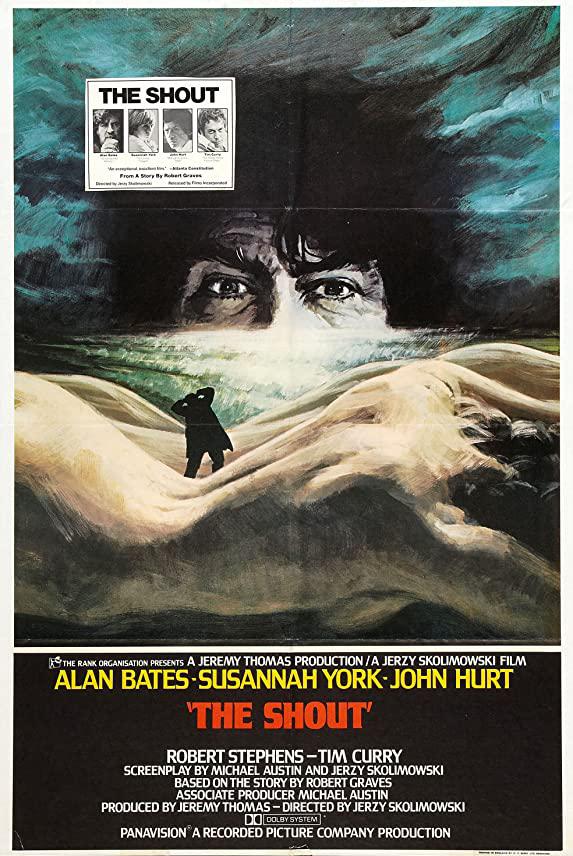
"Death Calling" poster
The Paper: I remember him in "Moonlight" and "Lightship", right?
Skolimowski: Yes, their music should be by Stanley Myers. Miles is also a very talented musician and we have collaborated several times. One day, I said to him, "Stanley, I want something a little different." I told him I wanted very modern music that was played by young people in London in the 1960s. Stanley thought for a while and took me to a club. I saw a young man playing the piano, which was exactly the music I wanted, and that young man was Hans Zimmer. After introducing ourselves to each other, I invited Hans to work on my film, and this became his stepping stone into the film industry. After that, he made his way in Hollywood. I think I can be regarded as a bole once.
The Paper: So how was the collaboration with the Polish composer Paweł Mykietyn?
Skolimowski: Mikietin is actually a composer of classical music, and his group often performs around the world. You know, Mikietin doesn’t usually make light-hearted, mass-popular music, but there’s an emotional expressiveness to his work that reminds me of my past collaborations with Christopher Komeda.
The way I work with Komeda is very special. He always wanted to see the original material I shot, not the final edited version, so some of the clips I showed him were much longer than what was presented in the film. He would ask me to be alone in the screening room just to make me feel completely relaxed, because he would ask me to use my own voice to match the footage, and sometimes I would yell. You see, this kind of experimental creative method can only be carried out between you and your friends, and it is impossible to do it with someone you hired. Because Komeda is my very close friend, I can go crazy and foolish in front of him without any burden, and make all kinds of weird noises. That really helps Komeda end up creating music that is full of emotions.
The way I work with Mikietin now is very similar to that. It doesn't mean that I will still make strange noises by myself, but that I will describe my feelings to him in a more relaxed and undisciplined way for a specific scene. He always has a keen sense of what I want to express, and it finally comes out in the soundtrack.
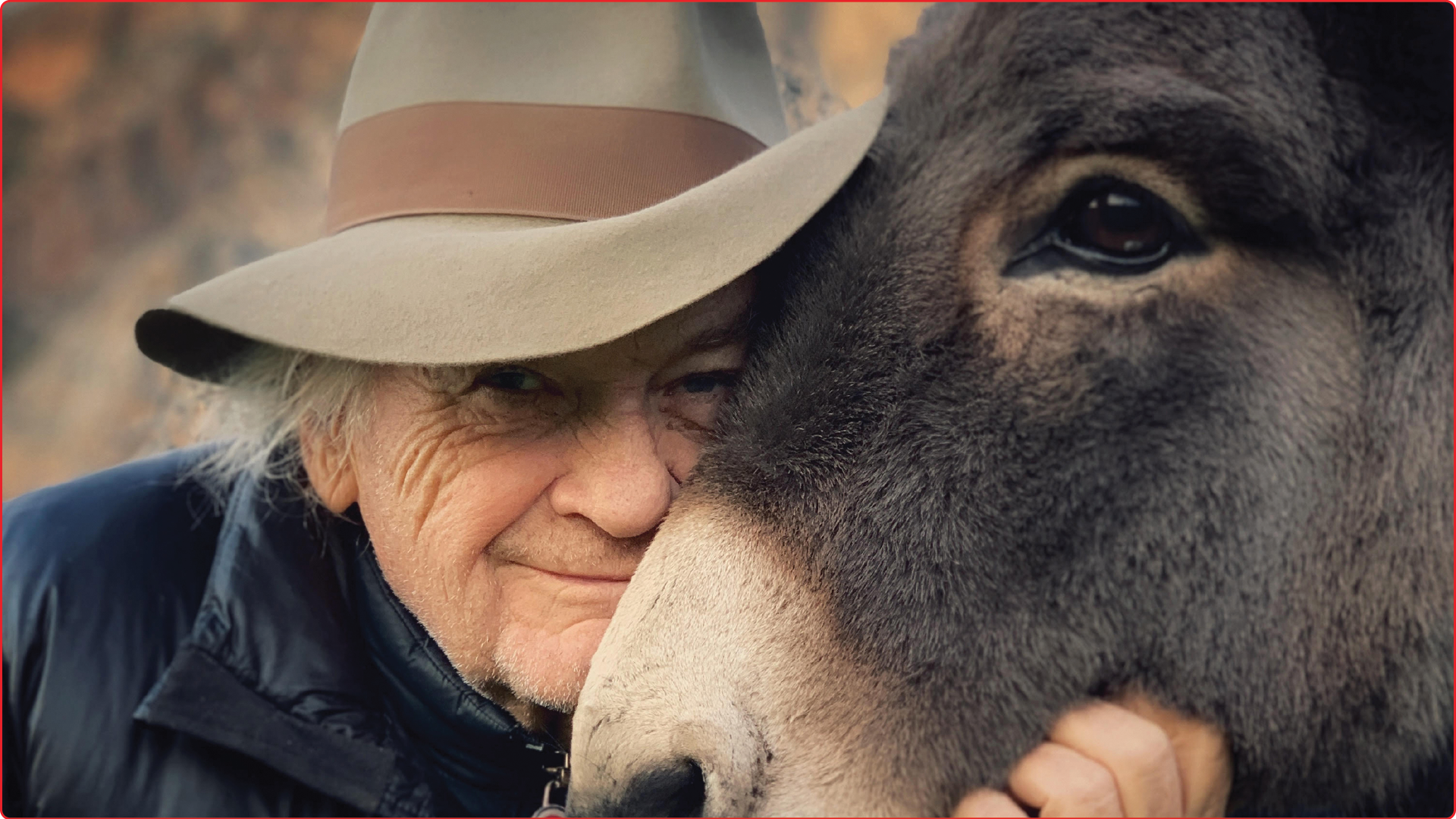
Skolimowski on the set of "The Donkey Braying"
"It's not for making movies, I don't want to get up early every day at all"
The Paper: In the 1960s, you were forced to leave your country and your works could not be released. I think this can be regarded as a kind of cancel culture under a special political system. Right now, a new kind of cancel culture is popping up in Hollywood and elsewhere in the world, like what happened to your friend director Roman Polanski. In the past, you have collaborated on the script of "Knife in the Water"; not long ago, you have collaborated on the script of his new film "Swiss Court". I wanted to ask, what is your take on the cancel culture he encountered?
Skolimowski: I think those are two completely different things, and what happened to me was purely political. As for Polanski, I think we should mainly talk about my work here today, so please allow me to skip this question.
The Paper: Okay, understandable. Well, I hope you don't mind talking about "Silent Roar", a work that changed your destiny. It was done in 1967, and when it finally came out in 1981, you added a prologue to it about your life after leaving Poland. Why is this preface necessary?
Skolimowski: I think it's complicated, it's about political changes in Poland. Back then, I took risks to speak out for some protests. I should have been ready for punishment, but I wasn't. I was still young at that time, and maybe I thought about the problem a little too simply. I didn't expect that it would cause such serious consequences. But anyway, that's just my personality, I like to take risks. I did what I wanted to do and endured what I could only bear. These are my stories now, and I have nothing else to say.
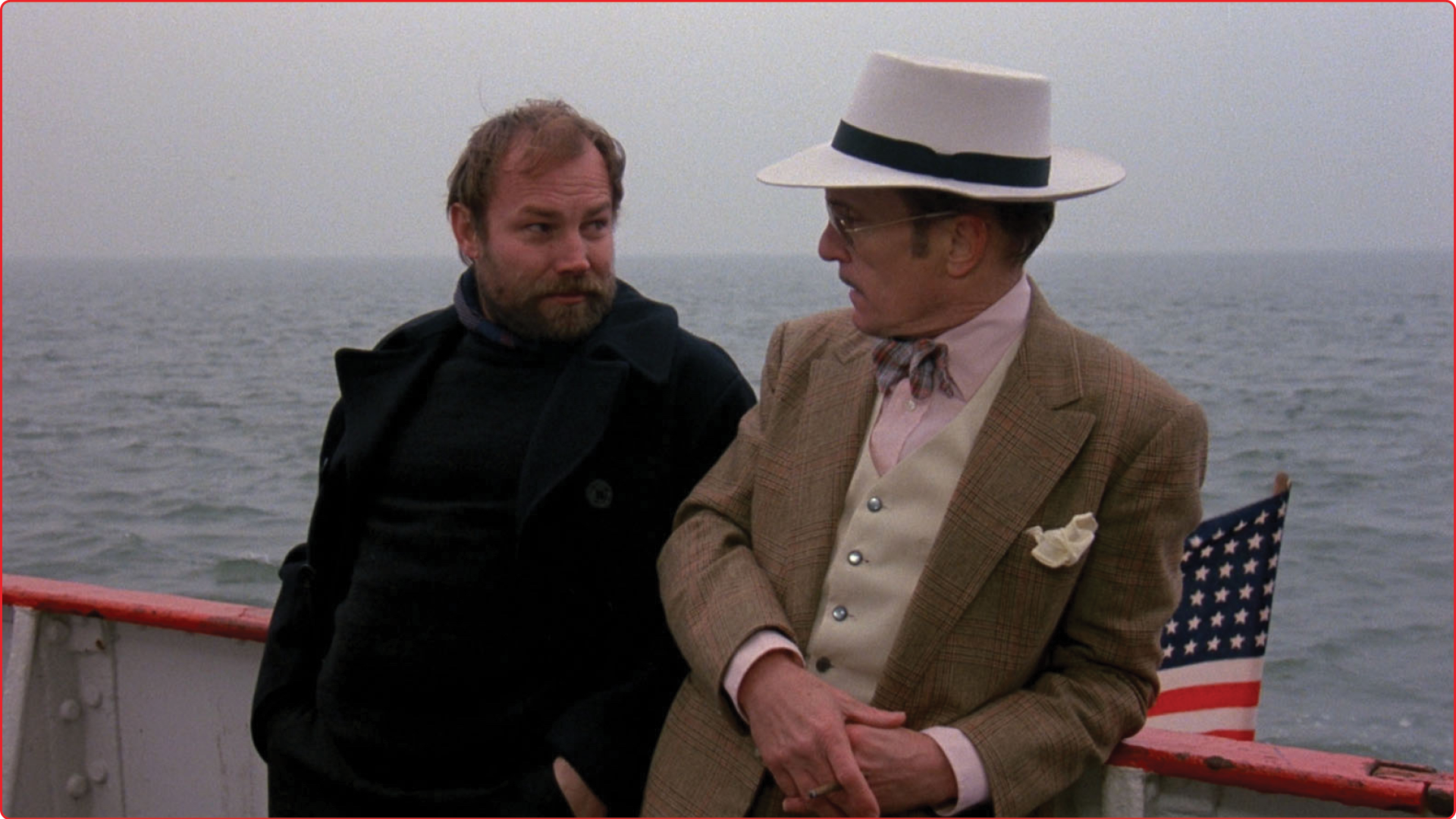
Klaus Maria Brandauer (left) and Robert Duvall in "Lightship"
The Paper: Let’s talk about actors again. In your previous conversation with Marco Müller, you mentioned that you had conflicts with the Austrian actor Klaus Maria Brandauer when you were filming The Lightship. But I think Robert Duvall and Klaus Maria Brandauer both showed superb performances in "Lightship". Moreover, the two characters in the film were originally antagonistic, and a strong dramatic tension was formed between Duvall's pretended elegance and Brandauer's pretended ease. I don't know whether the conflict outside the play has actually become a kind of thrust, making the performance of the two in the play more interesting.
Skolimowski: Indeed, sometimes the conflict during shooting does bring extra good chemistry to the movie. I'm not so sure, though, that our conflicts with Lightship helped the film itself. In my opinion, Brandauer is too self-righteous. Perhaps Lightship would have been a better film if there hadn't been conflict on set, and if everyone had remained purely professional, we have a group of talented people. However, unfortunately, the sense of competition that should only exist between the characters was taken outside the scene, causing unnecessary tension to permeate the set. Of course, these are the past and cannot be changed, you will never know if there is a better ending.
The Paper: The story of "Moonlight" starring Jeremy Irons seems too real, so it is very touching. I don't know if those plots, such as what he did in the supermarket, came from your own personal experience or your Polish friends?
Skolimowski: More comes from my imagination of the lives of people in that particular environment. I'm not sure if I'm in that predicament and dare to steal in the supermarket. So I asked Jeremy Irons to imagine what his character would do in a situation where he had no choice but to be or not to be. As a result, he played out the character's struggles so convincingly that you all think I've actually been through that. (laughs) No, no, I haven't shoplifted. However, I can empathize with what a character thinks and thinks in a certain situation, and then I communicate my feelings to the actors.
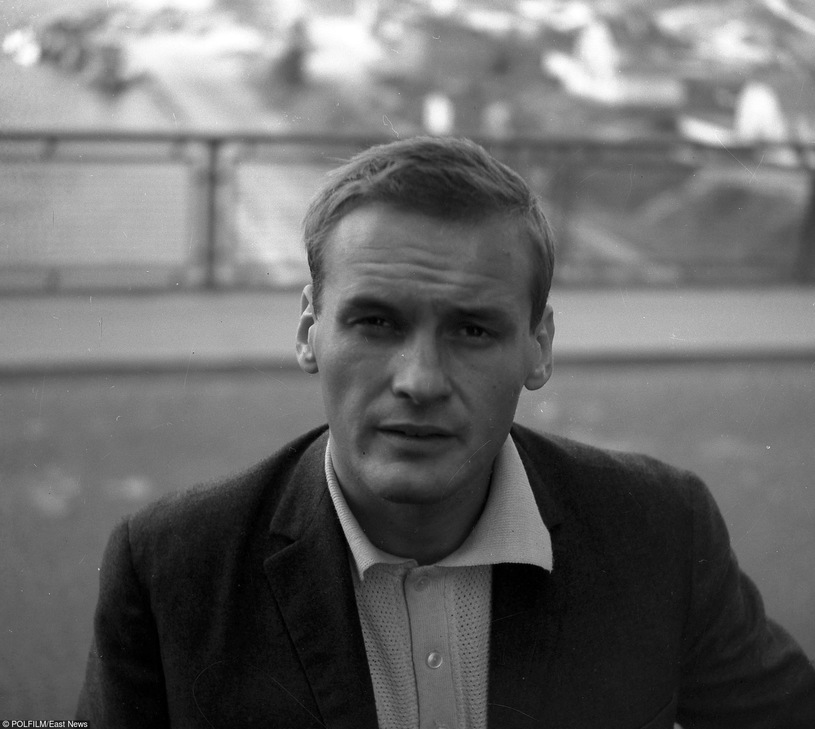
Young Skolimowski
The Paper: When you were very young, you helped director Andrzej Wajda revise the script of Ashes and Diamonds. Then, you find out that making movies is easy, so you give up writing and go to Uchi Film Academy "Z" (Łódź), the Polish film house, the correct pronunciation should be "Uchi"], became a film director. Now, after all these years, do you still find it easy to make movies?
Skolimowski: Well... you see I'm still shooting, so it should be easy (laughs). I have to confess, basically I'm pretty lazy. If it wasn't for making movies, I'm an elderly person who doesn't want to get up early every day-this is the worst part of making movies, sometimes it's 5 o'clock, sometimes it's earlier; Arriving late and exhausting. However, you can see that I can still continue to shoot, which means that this matter is easy enough, so that I can even overcome my own inertia.
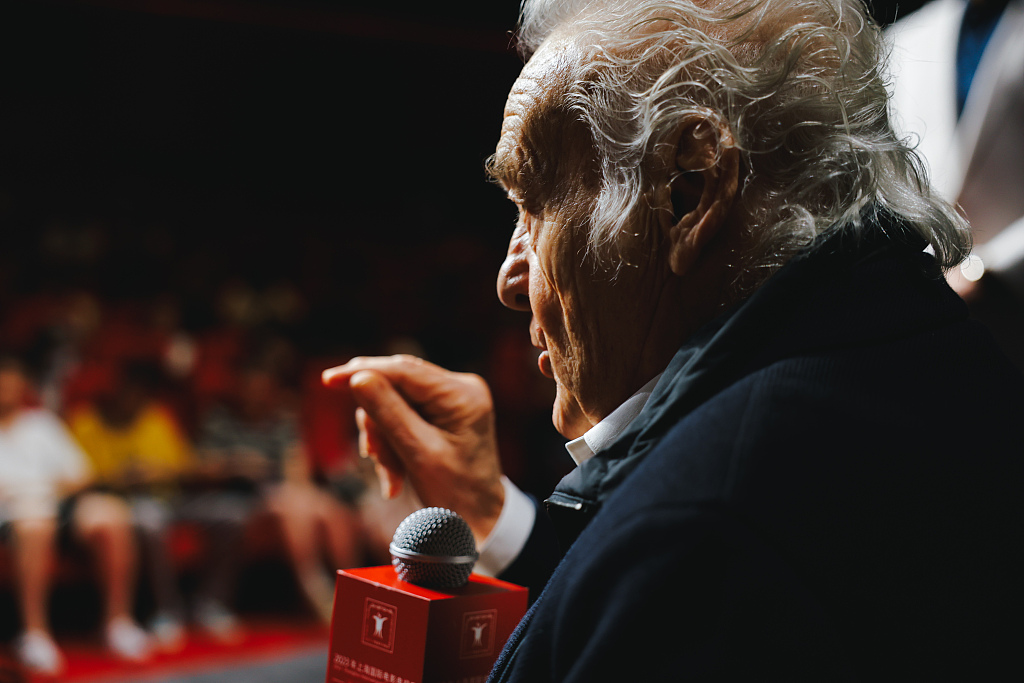
On June 16, 2023, director Jerez Skolimowski attended the post-screening meeting with "Donkey Bray". Visual China Map

